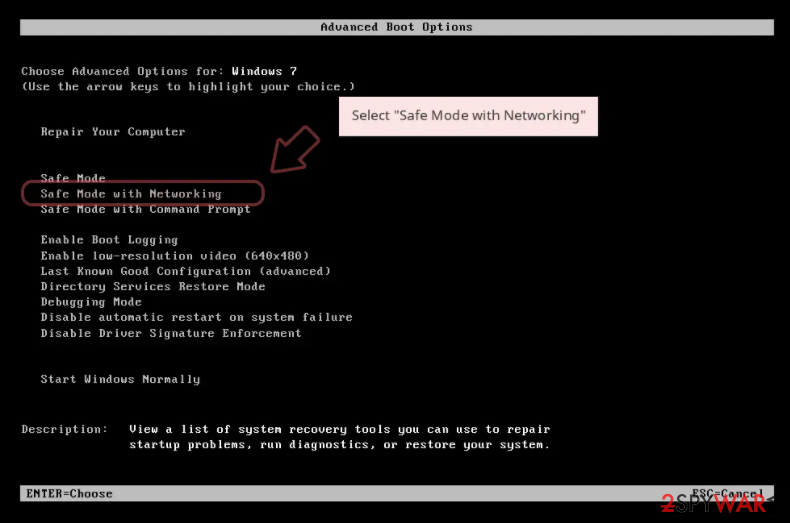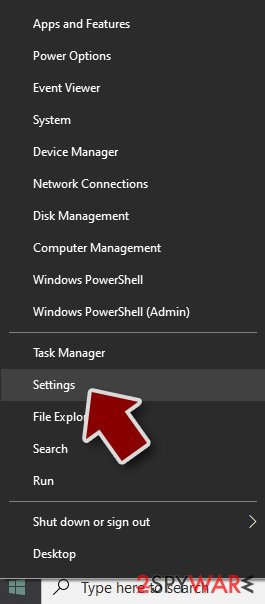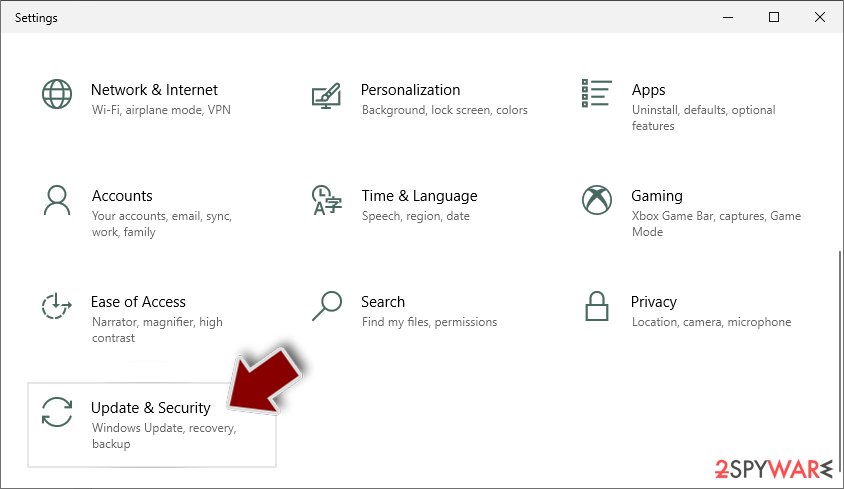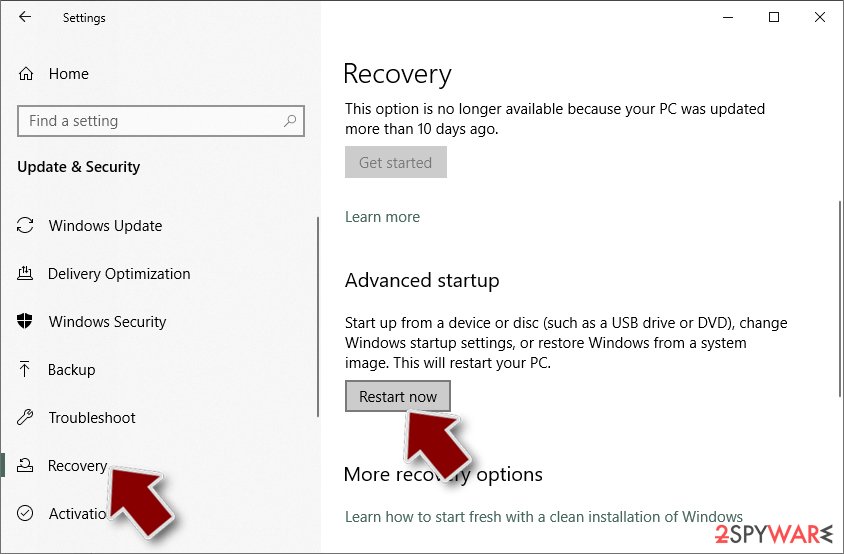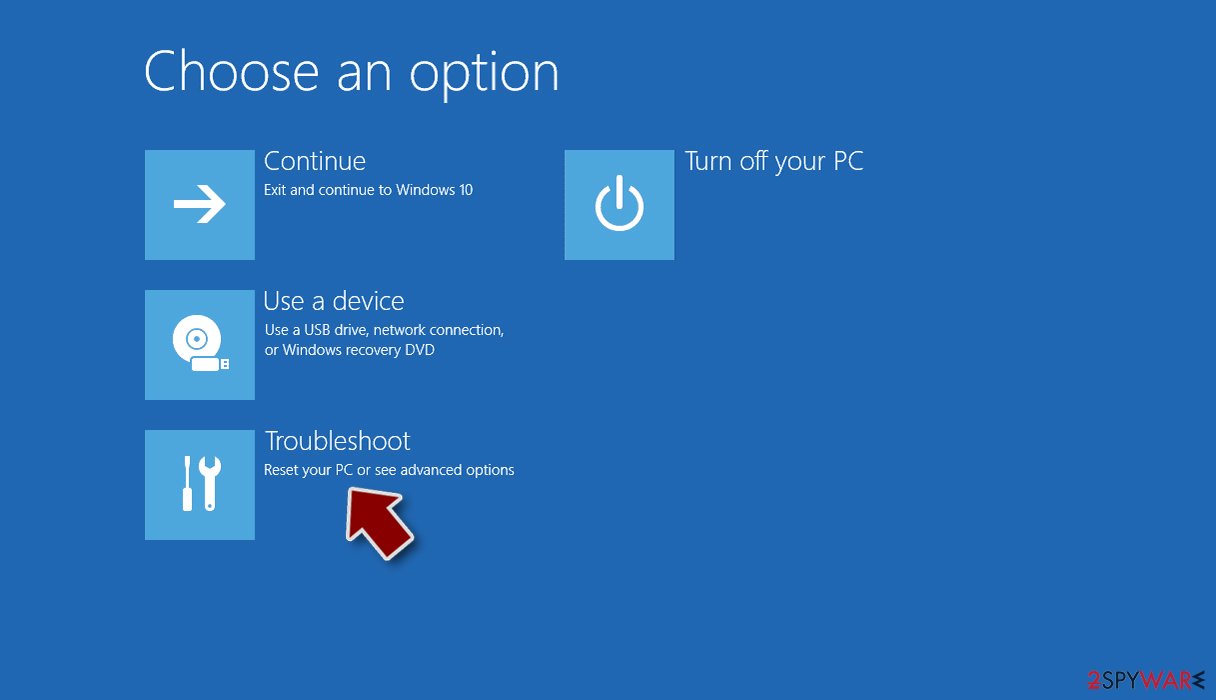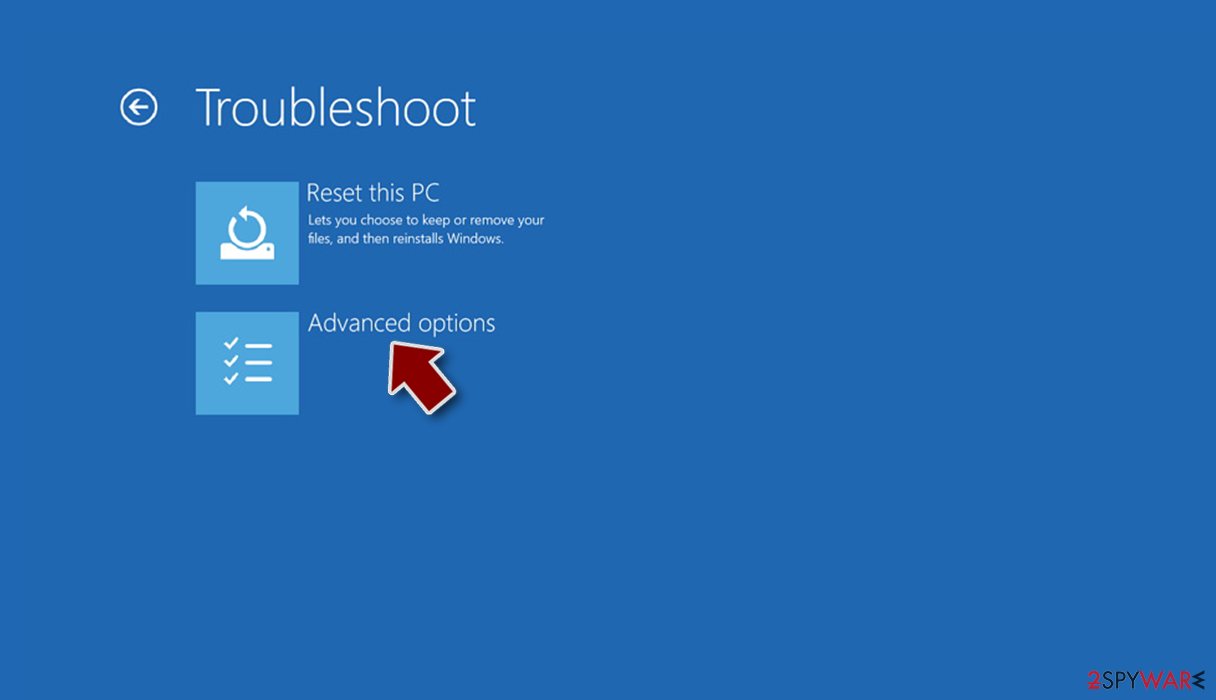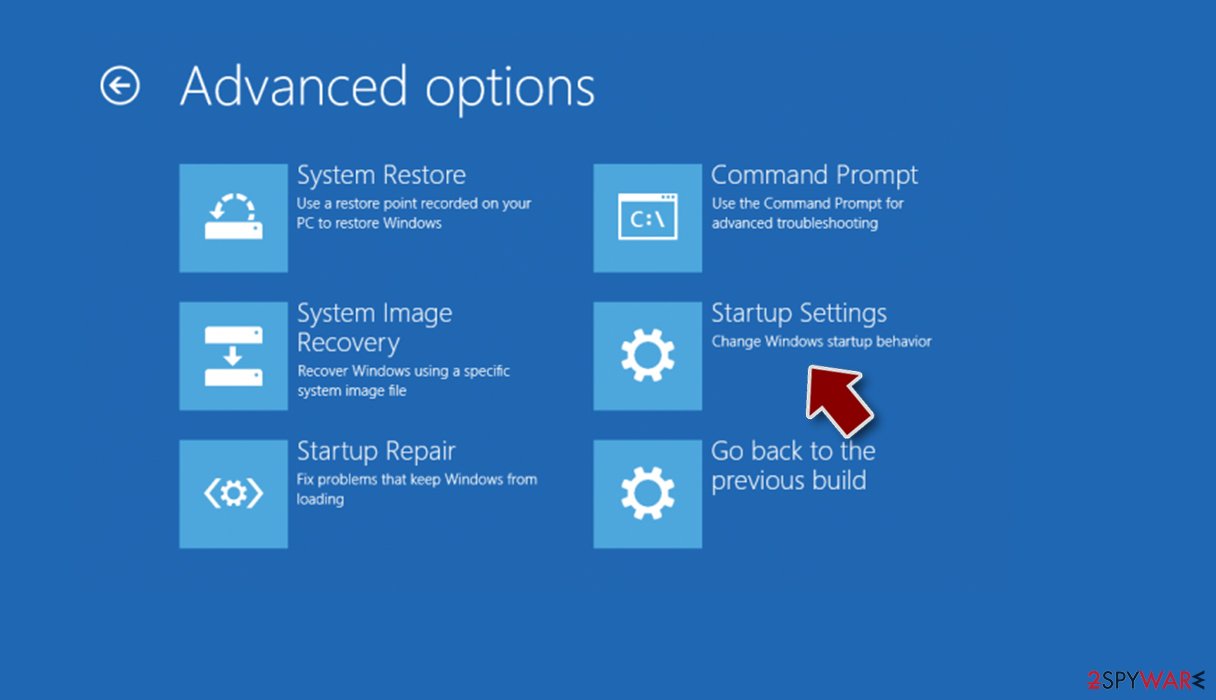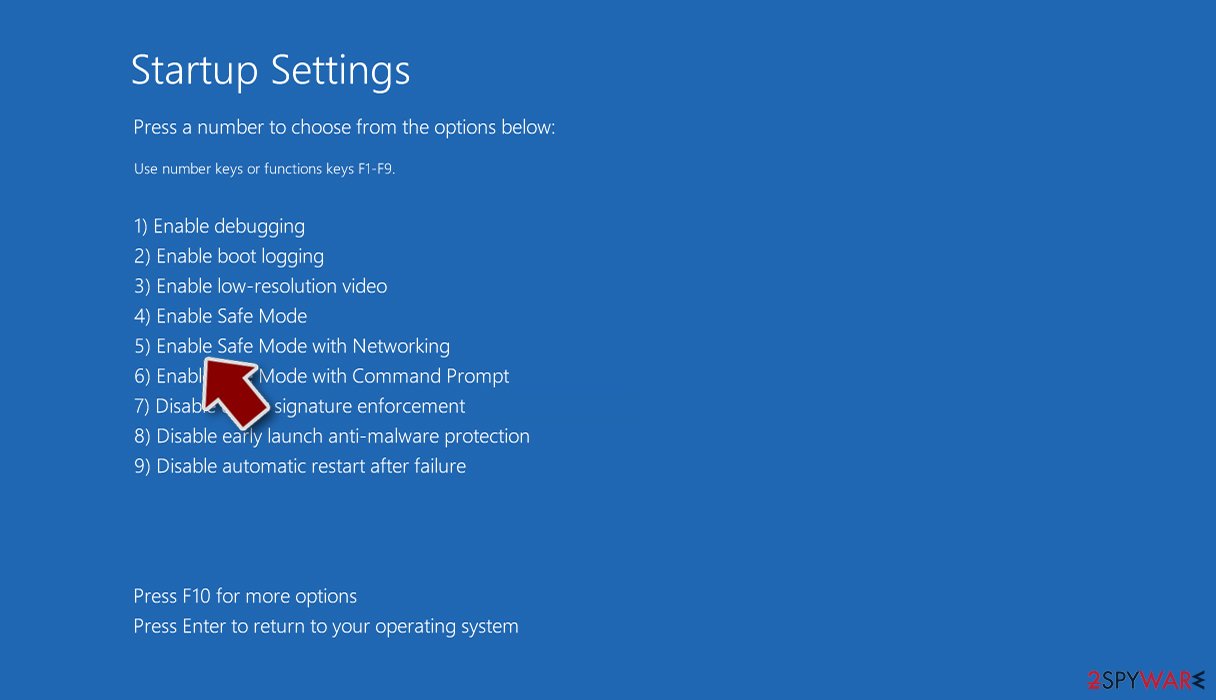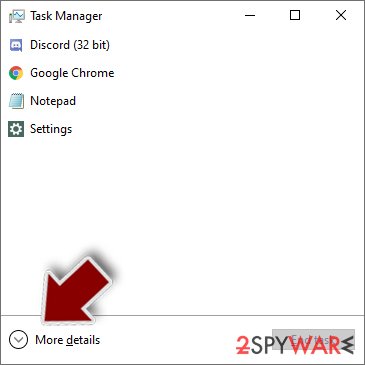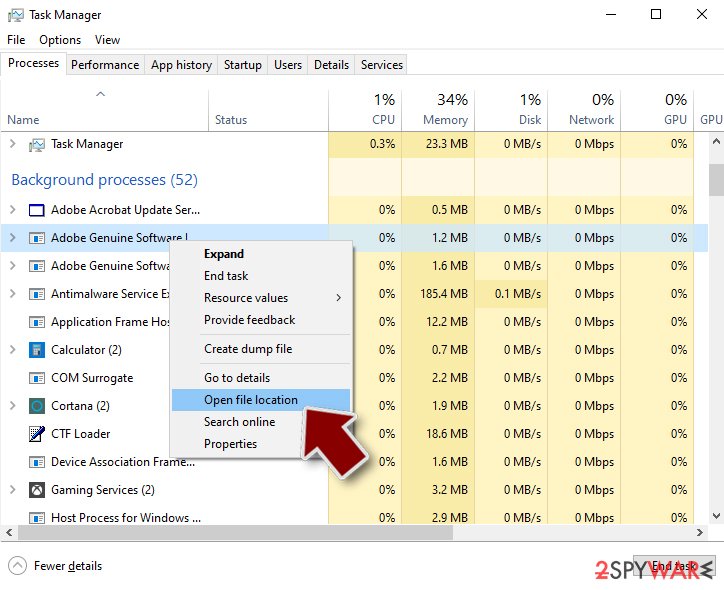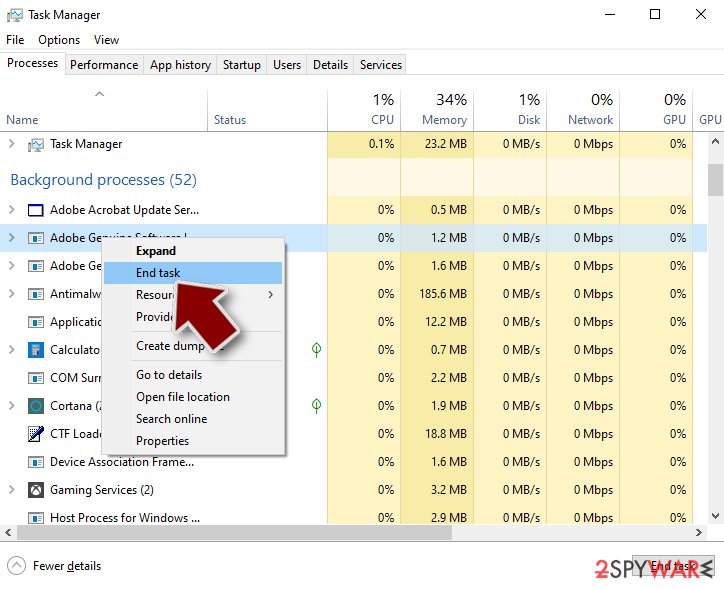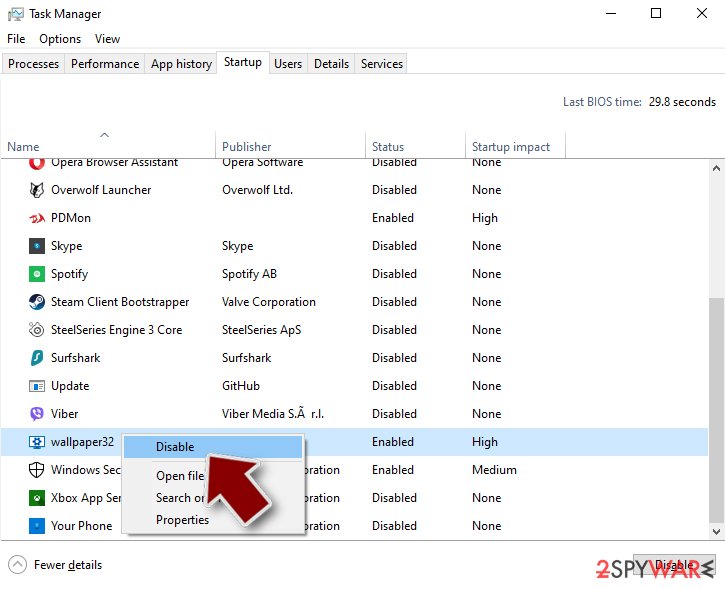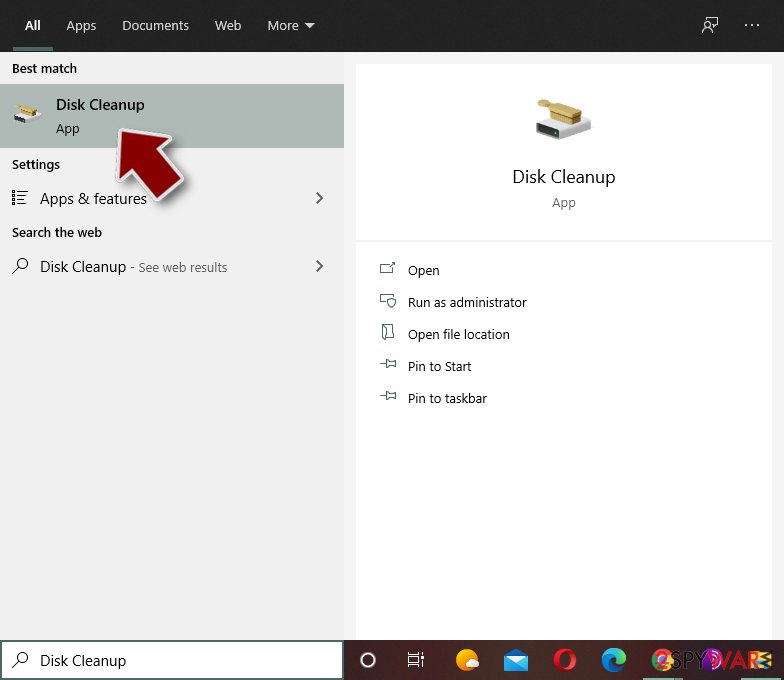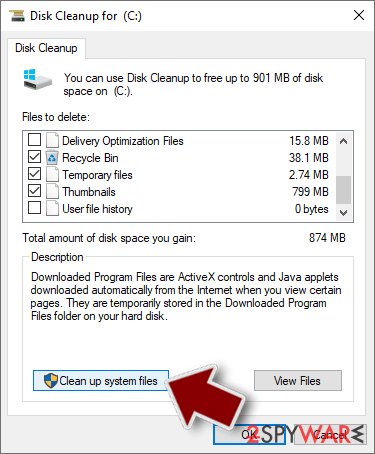Roblocker X ransomware / virus (Removal Guide) - Recovery Instructions Included
Roblocker X virus Removal Guide
What is Roblocker X ransomware virus?
Ways Roblocker X tries to trick users into paying for their encrypted files
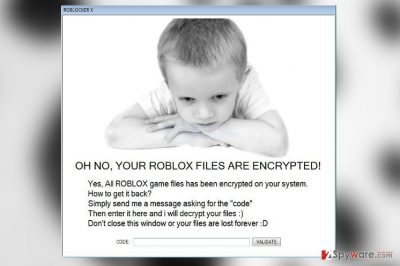
Roblocker X virus is another deceptive ransomware [1] which manipulates its victims to extort some money. This is a screenlocker virus which infiltrates computers and blocks people from accessing their desktop or any files on the computer. The ransom note explains that the virus has encrypted files belonging to the Roblox Games and that the victims have address the criminals directly, asking for the data decryption code:
OH NO, YOUR ROBLOX FILES ARE ENCRYPTED!
YEs, All ROBLOX game files has been encrypted on your system.
How to get it back?
Simply send me a message asking for the “code”
Then enter it here and i will decrypt your files 🙂
Don’t close this windows or your files are lost forever 😀
Currently, the virus still seems to be in the initial stages of development, so it does not actually do anything to the computer files. The lock screen can be easily disabled by entering a passcode “PooPoo” in the provided text box and clicking “Validate. Of course, after you work your way around the lock screen [2], you also have to remove Roblocker X from your computer. FortectIntego, Malwarebytes or similar software will help to perform this operation smoothly.
Even if Roblocker X has been designed purely as a joke, it can sure cause panic to people who have no experience dealing with such malware before. You should not lose your cool even if you see unfamiliar window blocking you from accessing your computer. Do not follow the criminals’ commands and focus on Roblocker X removal instead.
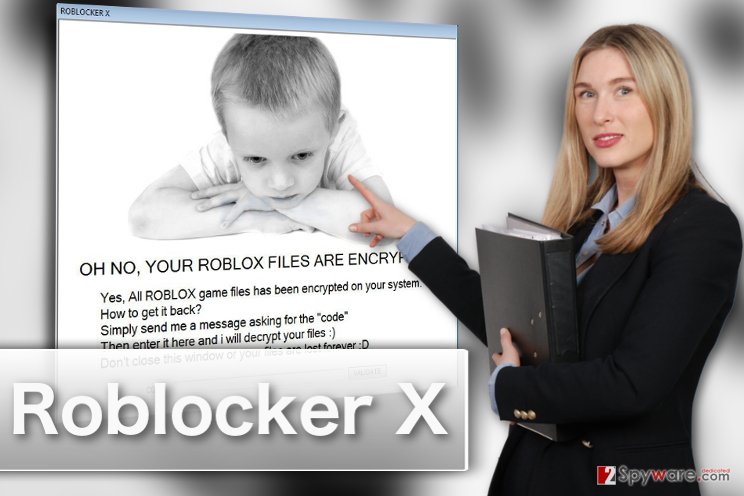
The fake ransomware infiltrates computers via spam emails
Roblocker X ransomware will most likely arrive on the computer after the user clicks on a malicious email attachment that has arrived on the computer as a result of a malicious spam campaign. Most ransomware developers successfully apply this technique for the distribution of their evil creations.
The criminals think of different ways to lure the victims into clicking on the malicious payload-carrying files. They may conceal them under some legitimate-looking invoice documents, online purchase information, parcel delivery notifications, etc. Downloading these documents will deploy Roblocker X on the computer, so you must be very careful while browsing through your email. Stay away from the spam folder and double check the legitimacy of emails received from unfamiliar senders before opening their attachments.
Dealing with Roblocker X removal
Perhaps the only way you can perform a truly safe and definite Roblocker X removal is by employing professional security software such as FortectIntego or SpyHunter 5Combo Cleaner. Nevertheless, before putting these tools into practice, you will have to remove Roblocker X lock screen. We explain how to do that in the guidelines below the article.
To prevent similar incidents in the future, make sure you regularly update your software, keep your system protected with strong real-time security utility and save backup copies of your files in some safe external storage drives.
Getting rid of Roblocker X virus. Follow these steps
Manual removal using Safe Mode
To escape the Roblocker X lock screen, enter the string “PooPoo” into the given box on the lock screen and click “Validate”. If this technique does not work, you may as well try bypassing the lock screen by booting your PC in Safe Mode. Here is how you can access it:
Important! →
Manual removal guide might be too complicated for regular computer users. It requires advanced IT knowledge to be performed correctly (if vital system files are removed or damaged, it might result in full Windows compromise), and it also might take hours to complete. Therefore, we highly advise using the automatic method provided above instead.
Step 1. Access Safe Mode with Networking
Manual malware removal should be best performed in the Safe Mode environment.
Windows 7 / Vista / XP
- Click Start > Shutdown > Restart > OK.
- When your computer becomes active, start pressing F8 button (if that does not work, try F2, F12, Del, etc. – it all depends on your motherboard model) multiple times until you see the Advanced Boot Options window.
- Select Safe Mode with Networking from the list.

Windows 10 / Windows 8
- Right-click on Start button and select Settings.

- Scroll down to pick Update & Security.

- On the left side of the window, pick Recovery.
- Now scroll down to find Advanced Startup section.
- Click Restart now.

- Select Troubleshoot.

- Go to Advanced options.

- Select Startup Settings.

- Press Restart.
- Now press 5 or click 5) Enable Safe Mode with Networking.

Step 2. Shut down suspicious processes
Windows Task Manager is a useful tool that shows all the processes running in the background. If malware is running a process, you need to shut it down:
- Press Ctrl + Shift + Esc on your keyboard to open Windows Task Manager.
- Click on More details.

- Scroll down to Background processes section, and look for anything suspicious.
- Right-click and select Open file location.

- Go back to the process, right-click and pick End Task.

- Delete the contents of the malicious folder.
Step 3. Check program Startup
- Press Ctrl + Shift + Esc on your keyboard to open Windows Task Manager.
- Go to Startup tab.
- Right-click on the suspicious program and pick Disable.

Step 4. Delete virus files
Malware-related files can be found in various places within your computer. Here are instructions that could help you find them:
- Type in Disk Cleanup in Windows search and press Enter.

- Select the drive you want to clean (C: is your main drive by default and is likely to be the one that has malicious files in).
- Scroll through the Files to delete list and select the following:
Temporary Internet Files
Downloads
Recycle Bin
Temporary files - Pick Clean up system files.

- You can also look for other malicious files hidden in the following folders (type these entries in Windows Search and press Enter):
%AppData%
%LocalAppData%
%ProgramData%
%WinDir%
After you are finished, reboot the PC in normal mode.
Remove Roblocker X using System Restore
Here is yet another method which may be helpful for escaping the ransomware lock screen if the passcode does not work.
-
Step 1: Reboot your computer to Safe Mode with Command Prompt
Windows 7 / Vista / XP- Click Start → Shutdown → Restart → OK.
- When your computer becomes active, start pressing F8 multiple times until you see the Advanced Boot Options window.
-
Select Command Prompt from the list

Windows 10 / Windows 8- Press the Power button at the Windows login screen. Now press and hold Shift, which is on your keyboard, and click Restart..
- Now select Troubleshoot → Advanced options → Startup Settings and finally press Restart.
-
Once your computer becomes active, select Enable Safe Mode with Command Prompt in Startup Settings window.

-
Step 2: Restore your system files and settings
-
Once the Command Prompt window shows up, enter cd restore and click Enter.

-
Now type rstrui.exe and press Enter again..

-
When a new window shows up, click Next and select your restore point that is prior the infiltration of Roblocker X. After doing that, click Next.


-
Now click Yes to start system restore.

-
Once the Command Prompt window shows up, enter cd restore and click Enter.
Bonus: Recover your data
Guide which is presented above is supposed to help you remove Roblocker X from your computer. To recover your encrypted files, we recommend using a detailed guide prepared by 2-spyware.com security experts.If your files are encrypted by Roblocker X, you can use several methods to restore them:
Finally, you should always think about the protection of crypto-ransomwares. In order to protect your computer from Roblocker X and other ransomwares, use a reputable anti-spyware, such as FortectIntego, SpyHunter 5Combo Cleaner or Malwarebytes
How to prevent from getting ransomware
Choose a proper web browser and improve your safety with a VPN tool
Online spying has got momentum in recent years and people are getting more and more interested in how to protect their privacy online. One of the basic means to add a layer of security – choose the most private and secure web browser. Although web browsers can't grant full privacy protection and security, some of them are much better at sandboxing, HTTPS upgrading, active content blocking, tracking blocking, phishing protection, and similar privacy-oriented features. However, if you want true anonymity, we suggest you employ a powerful Private Internet Access VPN – it can encrypt all the traffic that comes and goes out of your computer, preventing tracking completely.
Lost your files? Use data recovery software
While some files located on any computer are replaceable or useless, others can be extremely valuable. Family photos, work documents, school projects – these are types of files that we don't want to lose. Unfortunately, there are many ways how unexpected data loss can occur: power cuts, Blue Screen of Death errors, hardware failures, crypto-malware attack, or even accidental deletion.
To ensure that all the files remain intact, you should prepare regular data backups. You can choose cloud-based or physical copies you could restore from later in case of a disaster. If your backups were lost as well or you never bothered to prepare any, Data Recovery Pro can be your only hope to retrieve your invaluable files.
- ^ Kim Zetter. What is ransomware? A guide to the global cyberattacks. Wired. Tech news.
- ^ Phil Muncaster. ‘Lock Screen’ ransomware makes a comeback. Infosecurity-magazine. Information Security & IT Security News and Resources.
